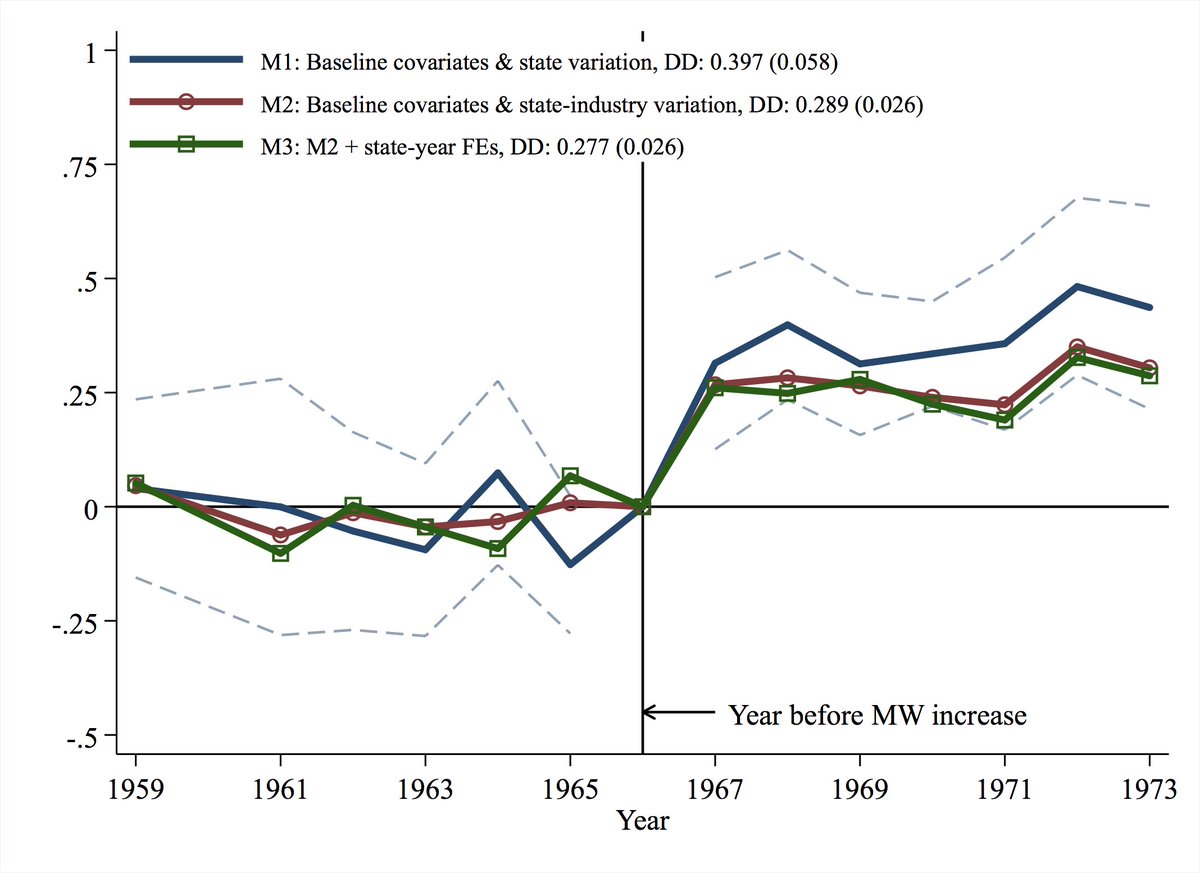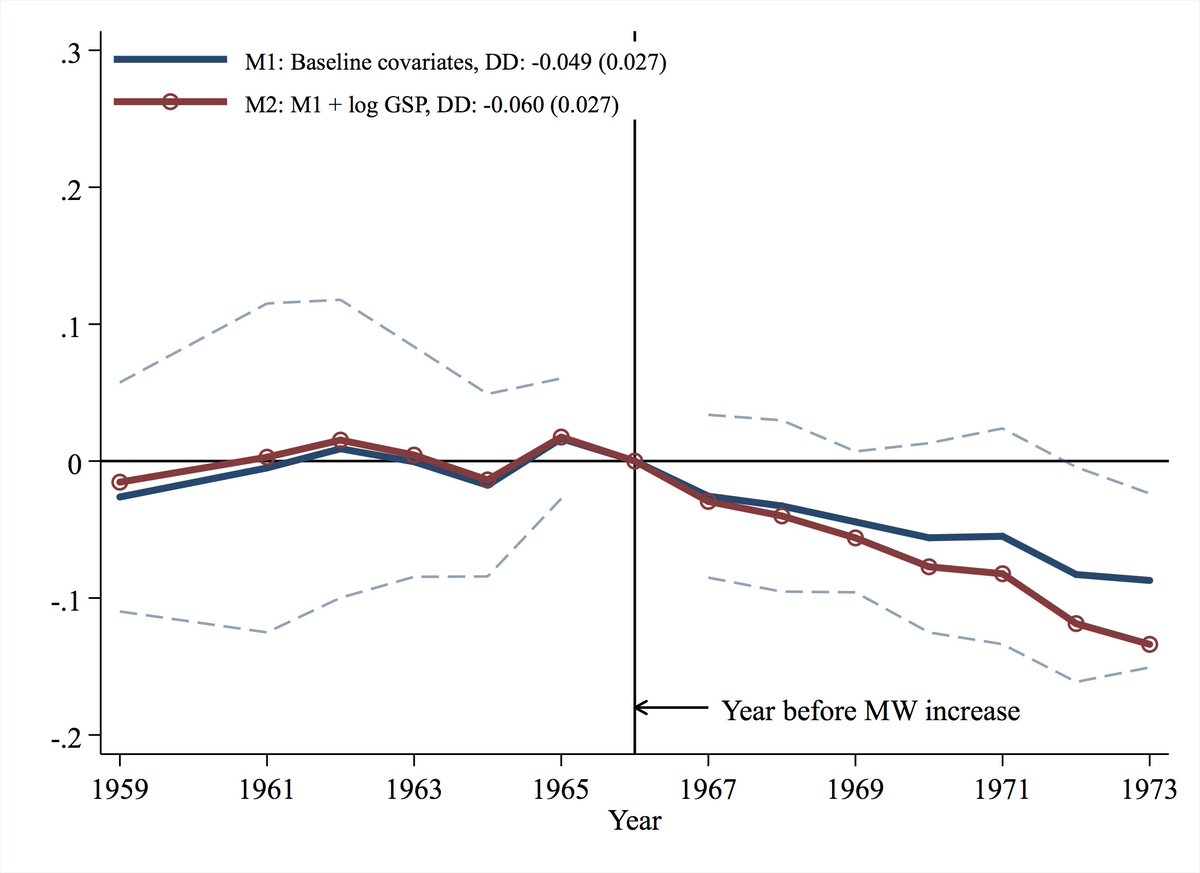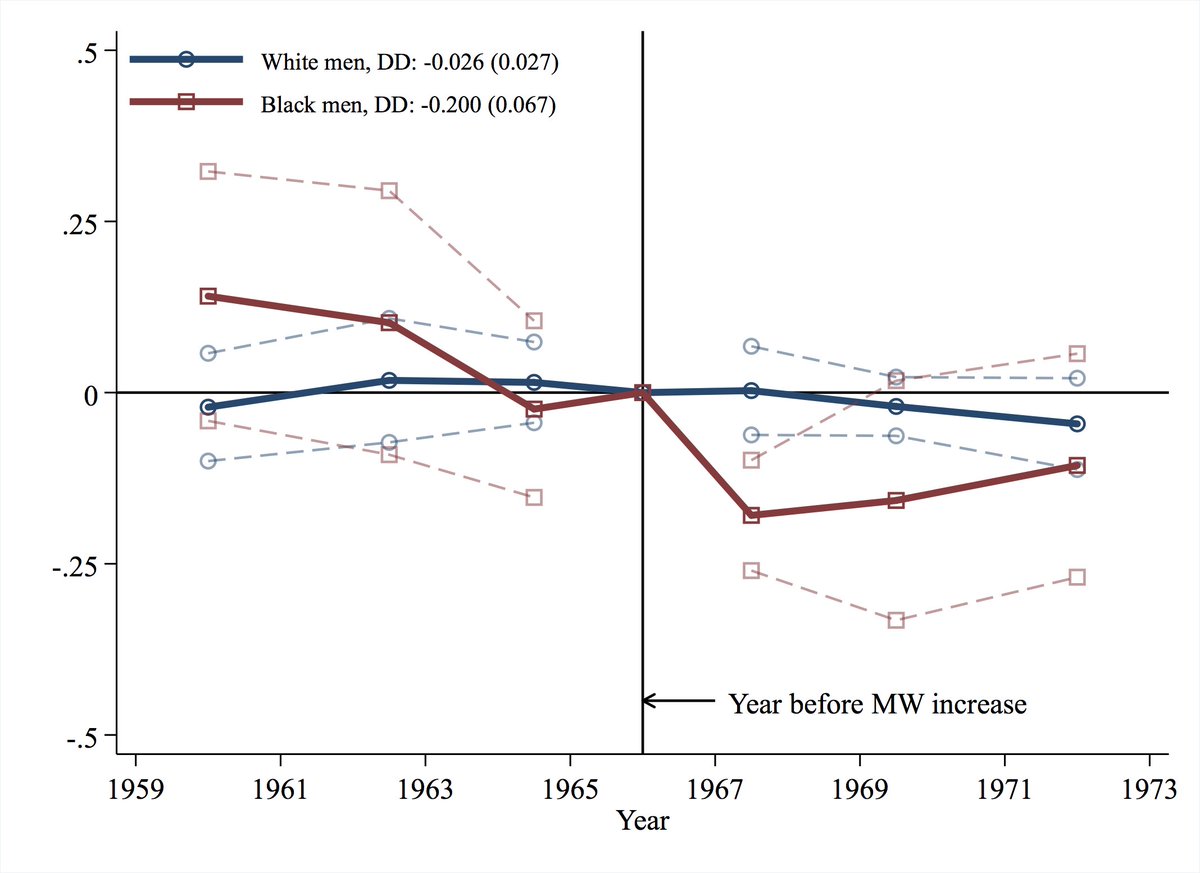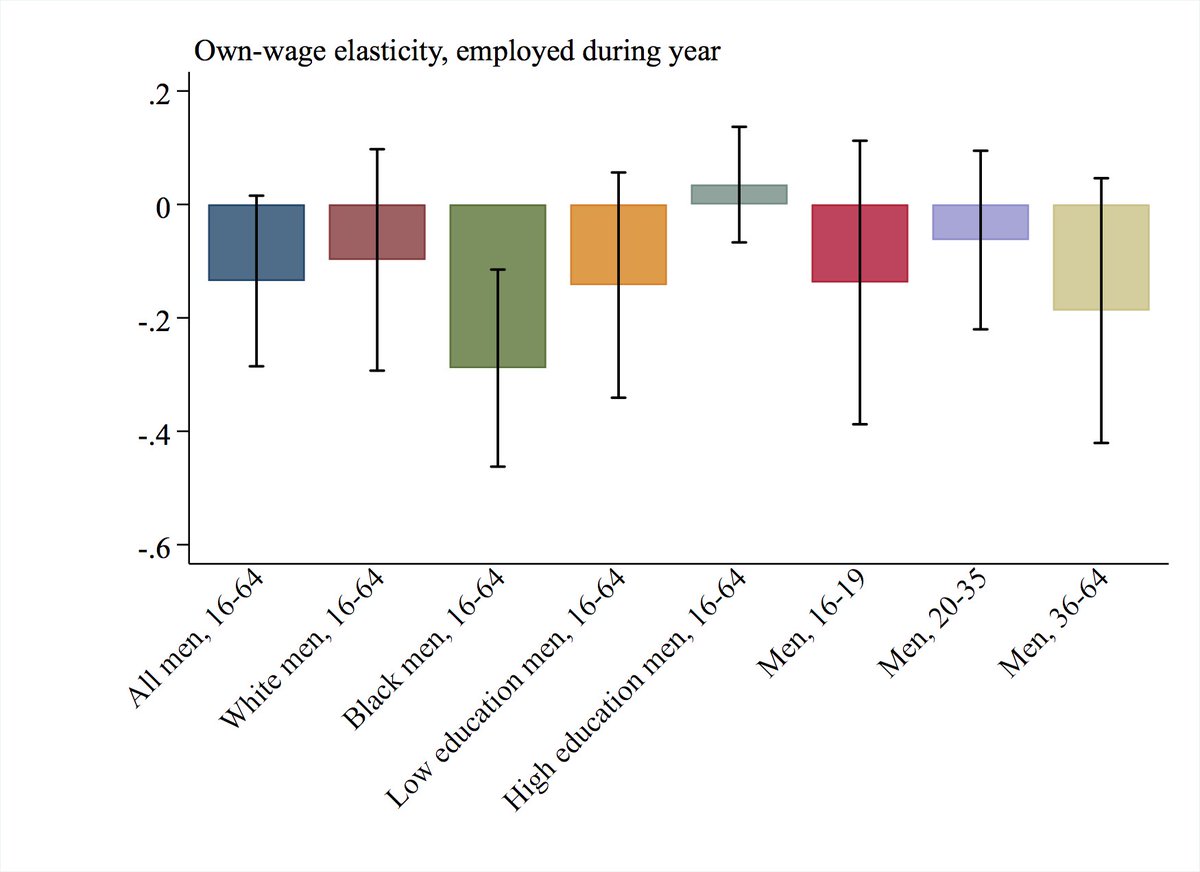Excited to share my new @nberpubs paper w/ @martha_j_bailey and the late John DiNardo.
We look at what happened when the 1966 FLSA increased its minimum wage to the highest real level ever (~$11.83 today) and expanded coverage to 9.1 million low wage workers. https://twitter.com/nberpubs/status/1247622676081864704">https://twitter.com/nberpubs/...
We look at what happened when the 1966 FLSA increased its minimum wage to the highest real level ever (~$11.83 today) and expanded coverage to 9.1 million low wage workers. https://twitter.com/nberpubs/status/1247622676081864704">https://twitter.com/nberpubs/...
Our research design uses variation across states in the "bite" of the min wage (HT: Card & #39;92).
Result 1: Wages increased more in states more affected by the 1966 FLSA, e.g. ~6% more in lower wage states like TX v. NY. And coverage expansion means the wage increase was persistent
Result 1: Wages increased more in states more affected by the 1966 FLSA, e.g. ~6% more in lower wage states like TX v. NY. And coverage expansion means the wage increase was persistent
Result 2: Aggregate employment fell modestly, e.g. ~0.7% more in TX v. NY. Employment fell more when controlling for gross state product (which we may not want to do, depending on whether it changed endogenously after 1966 FLSA).
Result 3: Employment response was much larger among African-American men, 40% of whom earned below the 1966 minimum and worked in newly covered industries. Little disemployment effects for white men. Disparate impacts of 1966 FLSA changed the composition of the 60s workforce.
Result 4: Summary of own-wage employment elasticities
All men: -0.135
Teens: -0.138 (but imprecise due to smaller sample size)
Black men: -0.289
So, the largest elasticities are smaller than some in literature but consistent with more recent work (cc @arindube @NeumarkDN)
All men: -0.135
Teens: -0.138 (but imprecise due to smaller sample size)
Black men: -0.289
So, the largest elasticities are smaller than some in literature but consistent with more recent work (cc @arindube @NeumarkDN)
Lessons from 1966 FLSA for current proposals?
1. Min wage increase to high level may have modest agg. employment effects but larger impact on lower earning groups
2. Responses today may be larger ($15 today v. $12 in 1966) or smaller (no coverage expansion today). Open question!
1. Min wage increase to high level may have modest agg. employment effects but larger impact on lower earning groups
2. Responses today may be larger ($15 today v. $12 in 1966) or smaller (no coverage expansion today). Open question!
Finishing this paper has been a joy but also bitter sweet. We were very fortunate to be able to write this paper with the late John Dinardo, who was a one-of-a-kind and wonderful human being and economist. We miss him dearly.
Comments are welcome!
Comments are welcome!

 Read on Twitter
Read on Twitter





